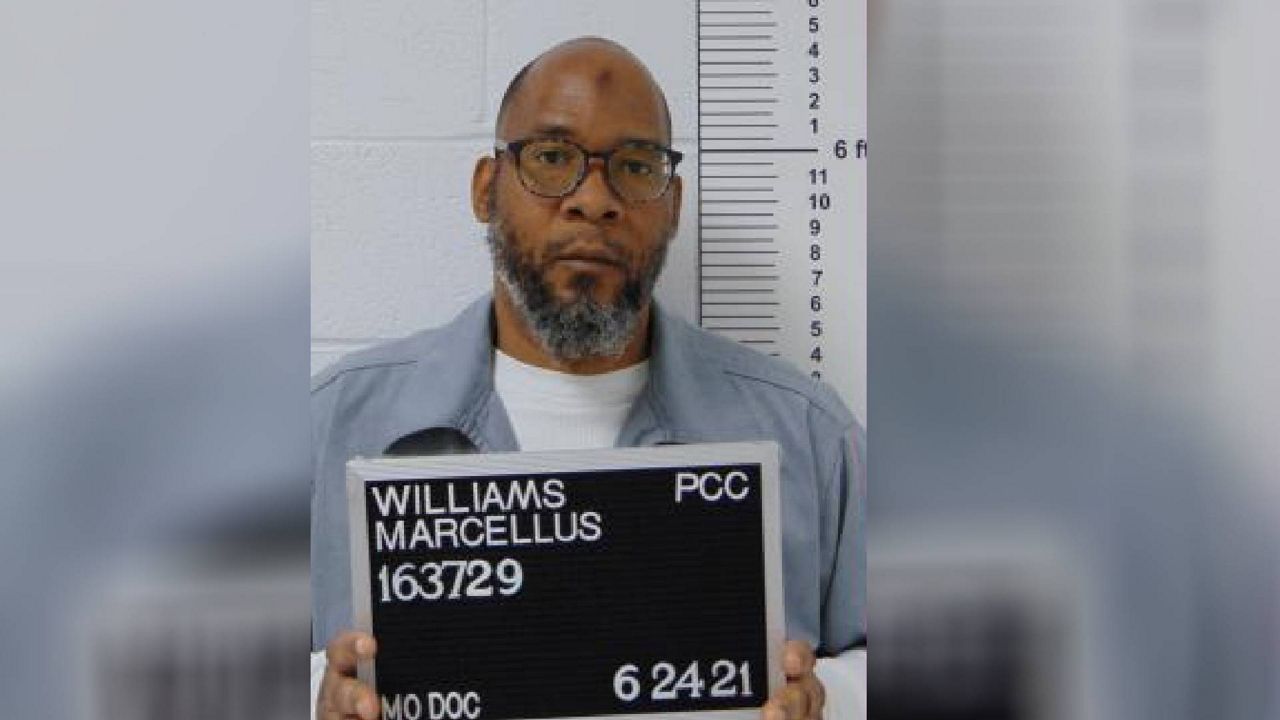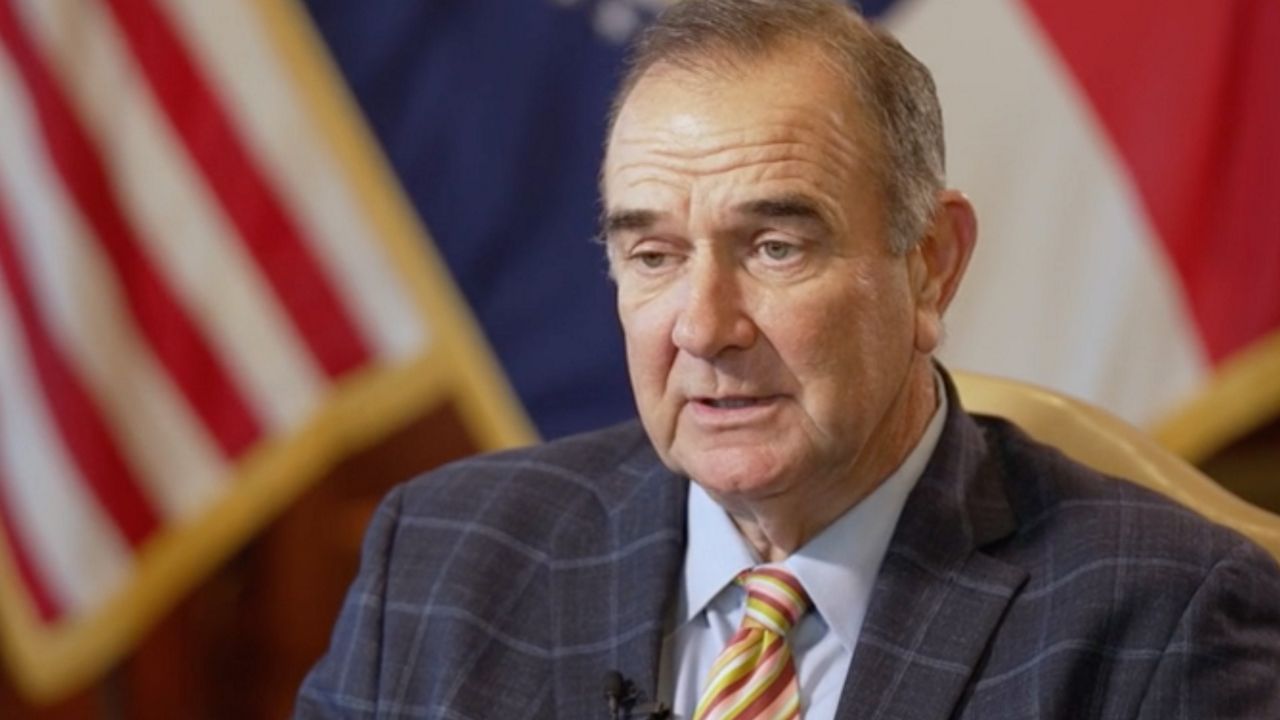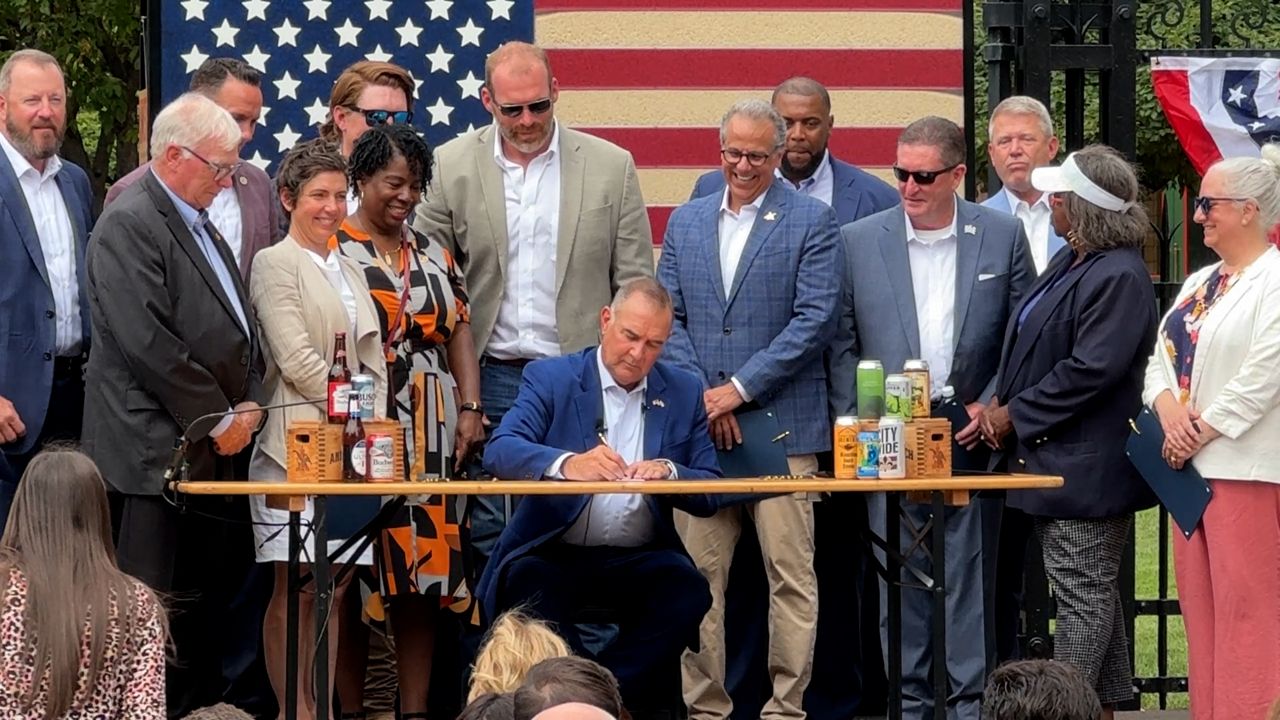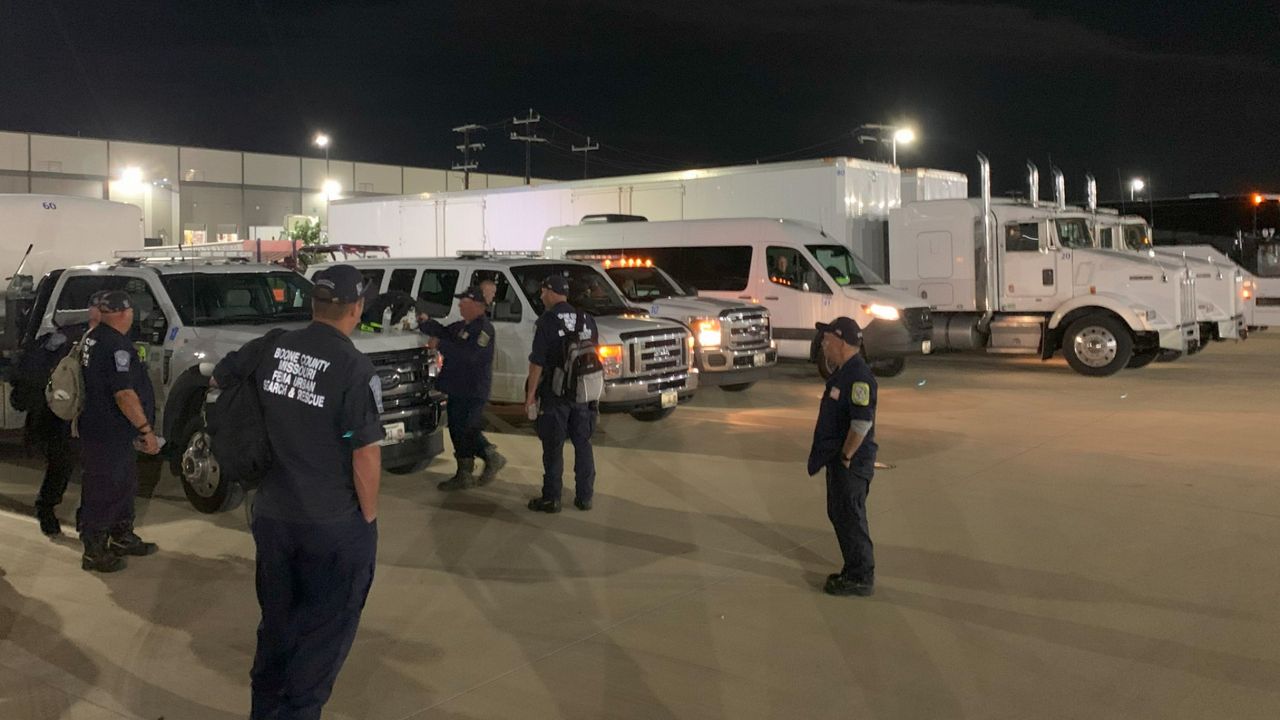ST. LOUIS — Late Wednesday night, the Missouri Supreme Court ruled en banc that the St. Louis County judge who was set to re-sentence Marcellus Williams to life in prison without the possiblity of parole Thursday morning after Williams entered an Alford Plea Wednesday afternoon, cannot proceed with that sentencing without first conducting an evidentiary hearing.
That evidentiary hearing to address a motion to vacate Williams' conviction was to have happened Wednesday morning but was delayed as attorneys met to negotiate an alternate path after a new analysis of DNA on the alleged murder weapon raised new questions about how prosecutors in Williams' 1998 murder case handled evidence.
Williams was attempting to prove his innocence ahead of his scheduled execution next month but ultimately entered an Alford Plea, a form of no-contest, in exchange for a life sentence in prison without the possibility of parole.
Lawyers for the Attorney General Andrew Bailey went to the state's highest court to challenge the circuit court's ability to on its own impose a new sentence in the case.
The state Supreme Court ordered St. Louis County judge Bruce Hilton to set aside the consent order accepting the Alford Plea on Thursday and to hold the originally scheduled evidentiary hearing by Sept. 13 or risk being ordered to hold it.
The ruling also allows Hilton to file a motion requesting an administrative stay of Williams' execution until the proceedings are resolved.
The evidentiary hearing is now scheduled for Wednesday, Aug. 28, at 8:30 a.m.
Marcellus Williams has agreed to take a plea deal to stave off his execuction scheduled for next month. During a Wednesday hearing, the inmate pleaded no contest under an Alford Plea, where the defendant accepts a plea bargain while maintaining their innocence.
Williams, 55, was convicted of first-degree murder in the 1998 stabbing death of Lisha Gayle in St. Louis County. He was hours away from execution in August 2017 when then-Gov. Eric Greitens, a Republican, granted a stay after DNA testing unavailable at the time of the killing showed that DNA on the knife matched someone else, not Williams. He was scheduled to be put to death prior to a St. Louis County Judge's decision Wednesday to grant the motion to vacate the death sentence.
Prosecutors said new analysis returned within the last few days confirmed that the murder weapon evidence was mishandled, indicating that DNA was likely removed and added between 1998-2001, which triggered settlement talks with Williams on Tuesday.
"One of the defense’s own experts previously testified he could not rule out the possibility that Williams’s DNA was also on the knife. He could only testify to the fact that enough actors had handled the knife throughout the legal process that others’ DNA was present," Attorney General Andrew Bailey said after the ruling. Bailey said the evidence the jury used to convict Williams remains intact, with Gayle's belongings found in Williams' car andd witness testimony that Williams had sold Gayle's laptop. "No innocent man is willing to spend the rest of his life in prison unless he knows he is guilty," Bailey said.
Missouri NAACP head Nimrod Chapel, a vocal critic of the death penalty, and Bailey's handling of post-conviction relief cases in Missouri, said the judgment Wednesday was a win for Williams in that he avoids execution, but said justice wasn't served.
"It's a loss to the the system, our judicial system, and our democracy because if we can't believe in and depend upon the integrity of the prosecutors in the case, the police in the case and our court system, then we have a problem with that entire branch of democracy," he said.
Williams' son, Marcellus said he had hoped for full exoneration with the motion to vacate process, but isn't giving up.
"My father is strong in his faith. A very resilient man, very intelligent, He feels like if he has to be the vessel of sacrifice to promote change then so be it," he said. "Developments happen every day, cases just like on the movies and TV...so something else could happen, you never know, so it's not over."
The attorney general's office is still appealing the circuit court's ability to impose a new sentence. The state is filing a writ to appeal to the state Supreme Court Wednesday.
Otherwise, Williams will be sentenced Thursday morning at 8:30, when Gayle's family, which has said it does not support the death penalty in this case, will have the chance to testify.
A 2021 Missouri law allows prosecuting attorneys to file a motion seeking to vacate a conviction they believe was unjust. The law has resulted in exonerations of three men who spent decades in prison, including Christopher Dunn last month.
In addition to Dunn, who spent 34 years behind bars for the death of a 15-year-old St. Louis boy, the Missouri law allowing prosecutors to challenge convictions led to freedom for two other men — Kevin Strickland and Lamar Johnson. Bailey was not attorney general when Strickland's case went to a hearing, but his office opposed vacating the convictions of Dunn and Johnson.
Bailey also opposed efforts to overturn the conviction of Sandra Hemme, who spent 43 years in prison for murder, though that case was adjudicated through appeals, not a prosecutor’s motion. A judge ruled in June that Hemme should be freed. Bailey filed multiple appeals to try and keep her behind bars, but Hemme was released in July.
Strickland was freed in 2021 after serving more than 40 years for three killings in Kansas City after a judge ruled he had been wrongfully convicted in 1979. In 2023, a St. Louis judge overturned Johnson's conviction. He served nearly 28 years for a killing he always said he didn’t commit.
Williams is the first death row inmate whose innocence claim was to go before a judge since passage of the 2021 law. He's getting support from another former condemned inmate. Joseph Amrine spent 17 years on death row before he was freed in 2003 after the Missouri Supreme Court ruled that no credible evidence linked him to the killing of another inmate. Amrine spoke at a mid-day rally for Williams nearby in Clayton Wednesday.
Prosecutors at Williams' trial said he broke into Gayle’s suburban St. Louis home on Aug. 11, 1998, heard water running in the shower, and found a large butcher knife. When Gayle came downstairs, she was stabbed 43 times. Her purse and her husband’s laptop were stolen. Gayle, who was white, was a social worker who previously worked as a reporter for the St. Louis Post-Dispatch.
Authorities said Williams stole a jacket to conceal blood on his shirt. Williams’ girlfriend asked him why he would wear a jacket on a hot day. The girlfriend said she later saw the laptop in the car and that Williams sold it a day or two later.
Prosecutors also cited testimony from Henry Cole, who shared a St. Louis cell with Williams in 1999 while Williams was jailed on unrelated charges. Cole told prosecutors Williams confessed to the killing and offered details about it.
Williams’ attorneys responded that the girlfriend and Cole were both convicted felons out for a $10,000 reward.









